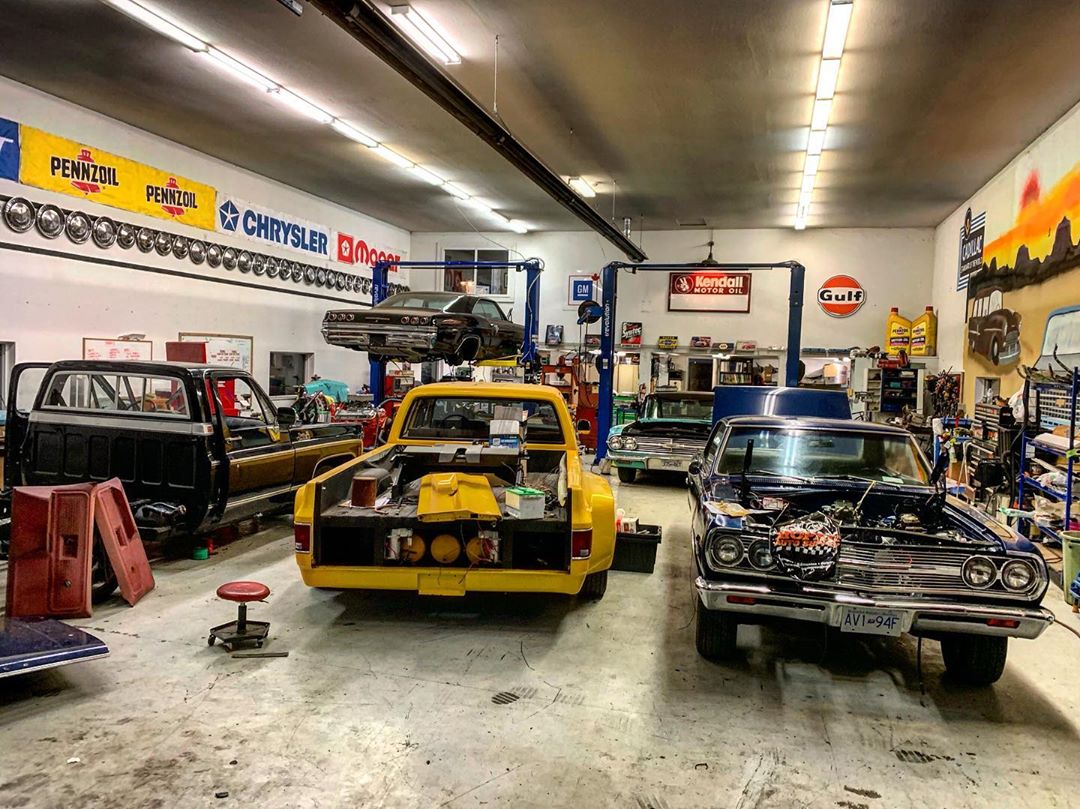All Categories
Featured

[/image]
A properly maintained engine is the crucial to your automobile's durability and height efficiency. Regular engine tune-ups not only improve fuel efficiency yet likewise lower the probability of unanticipated malfunctions. Whether you're an automobile enthusiast or someone that just desires to prevent pricey repair services, these engine tune-up pointers will keep your car running like a desire.

- Replace the Spark Plugs. The ignition system stir up the air-fuel combination in your engine, and their efficiency straight influences engine efficiency. In time, trigger plugs can wear out, leading to misfires, lowered fuel economy, and sluggish acceleration.
Throughout a tune-up, examine and replace ignition system if they reveal indicators of wear, such as soot buildup, deterioration, or fractures. Relying on your car, stimulate plugs might need to be changed every 30,000 to 100,000 miles.
- Evaluate the Ignition System. Your automobile's ignition system, which consists of the ignition coils, distributor, and cables (if relevant), is liable for supplying the spark that powers your engine. Malfunctioning ignition elements can create starting concerns and harsh engine operation.
Look for harmed or used components and replace them during your tune-up. Making certain a healthy ignition system will certainly boost engine dependability and performance.
- Tidy or Change the Air Filter. A clean air filter enables your engine to "take a breath" appropriately by making sure a consistent flow of tidy air. Over time, dirt and debris can clog the filter, decreasing airflow and influencing fuel effectiveness.
Evaluate the air filter throughout a tune-up and change it if it's dirty. For drivers in dirty or polluted areas, air filters might need to be transformed extra regularly.
- Inspect and Clean the Gas System. The gas system, including the fuel injectors, fuel pump, and gas lines, can build up down payments over time, lowering fuel delivery and engine performance. Make use of a gas injector cleaner or have your system properly cleaned up during a tune-up to bring back proper capability.
Consistently maintaining your fuel system makes sure better burning and optimizes your engine's performance.

- Change the Engine Oil and Oil Filter. Engine oil is crucial for lubrication, cooling, and reducing friction in between relocating components. Gradually, oil degrades and collects particles, shedding its efficiency.
Throughout a tune-up, change the engine oil and oil filter. Adhering to the manufacturer's suggestions for oil type and modification intervals is crucial to maintaining your engine in ideal problem.
- Inspect the Belts and Pipes. The belts and pipes in your engine compartment play important duties in powering elements like the alternator, water pump, and cooling system. Deterioration in time can lead to splits, fraying, or leaks.
Inspect the condition of belts and hoses throughout your tune-up and change any kind of that show signs of damage. Proactively addressing these issues can avoid expensive repair work and unexpected malfunctions.
- Check the Battery and Electrical System. A weak or stopping working battery can leave you stranded. During your tune-up, test the battery's voltage, examine the terminals for deterioration, and ensure the links are limited.
In addition, have the generator and starter checked to ensure they're working properly. Resolving electric system concerns early can conserve you from bothersome surprises.
- Check the Cooling System. The cooling system stops your engine from overheating, which can create severe damage. Throughout a tune-up, inspect the radiator, pipes, and water pump for leakages or wear.
Flush and replace the coolant if it's dirty or has surpassed its recommended life span. Correct cooling system upkeep assists your engine operate within its optimum temperature level variety.
- Address Dashboard Caution Lights. Modern automobiles are furnished with sophisticated analysis systems that light up alerting lights when problems develop. If your dashboard displays any type of warning lights, such as the check engine light, resolve them during the tune-up.
An expert mechanic can make use of diagnostic devices to recognize and deal with the problem, avoiding tiny issues from rising.
- Maintain Your Engine Clean. A tidy engine runs cooler and is simpler to evaluate for possible issues. Get rid of dirt, grease, and gunk from your engine bay throughout a tune-up. Utilize a degreaser and a gentle brush for cleansing, and prevent spraying water directly on electric components.
Verdict: Tune-Ups Are the Key to Engine Durability. Routine engine tune-ups are an investment in your automobile's health, performance, and effectiveness. By replacing used components, cleaning up vital systems, and resolving issues early, you'll ensure your vehicle remains trusted for years ahead. Whether you're taking on the tune-up on your own or taking your automobile to a trusted mechanic, adhering to these pointers will maintain your engine going for its finest and help you stay clear of unexpected repair work. A properly maintained engine doesn't simply save you cash-- it ensures satisfaction on the road.
Latest Posts
Explore Special Auto Repair Deals in Chicago at Montclare Auto Repair
Explore Special Auto Repair Specials in Chicago at Montclare Auto Repair
Join WyHy FCU – Top Benefits for Your Future